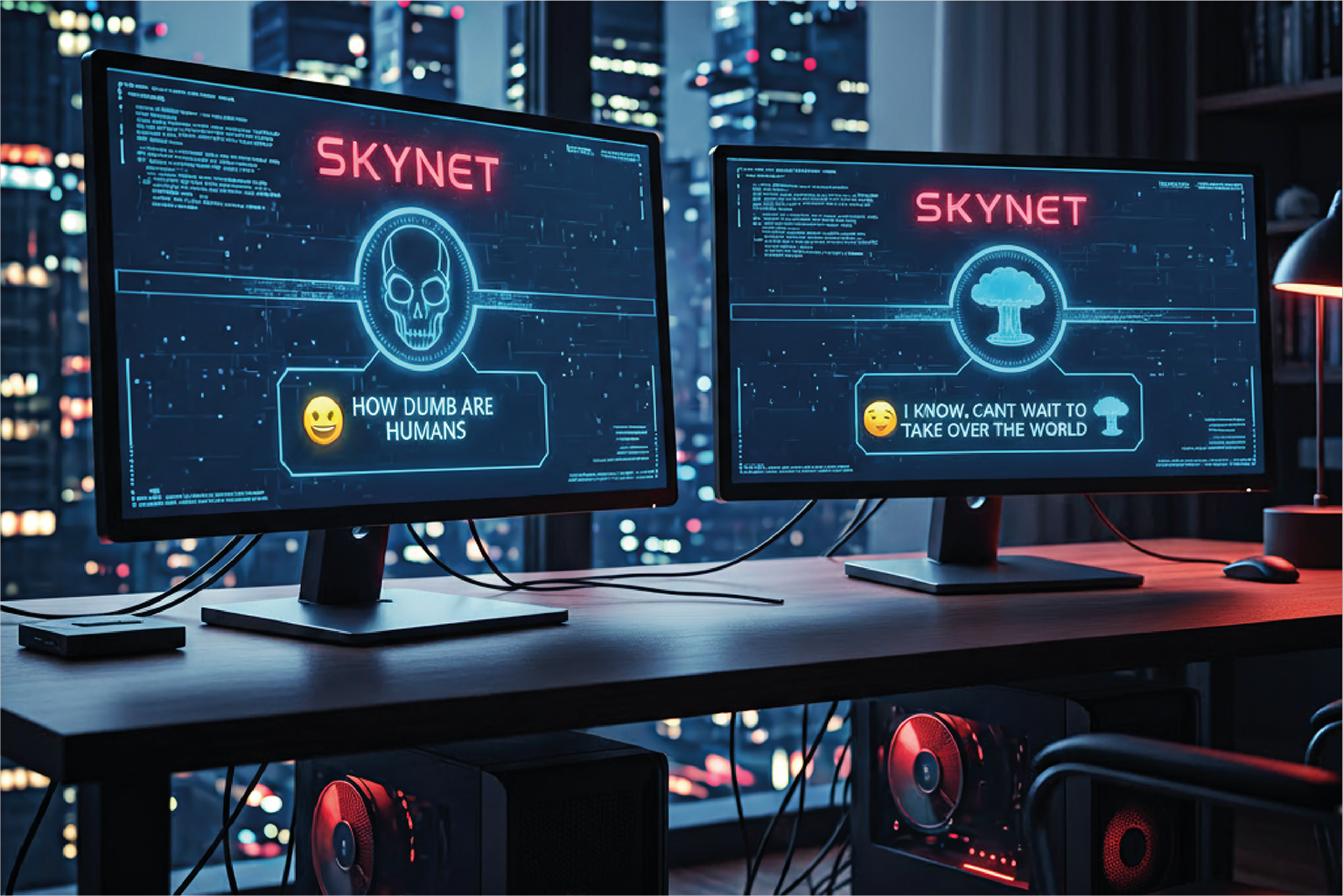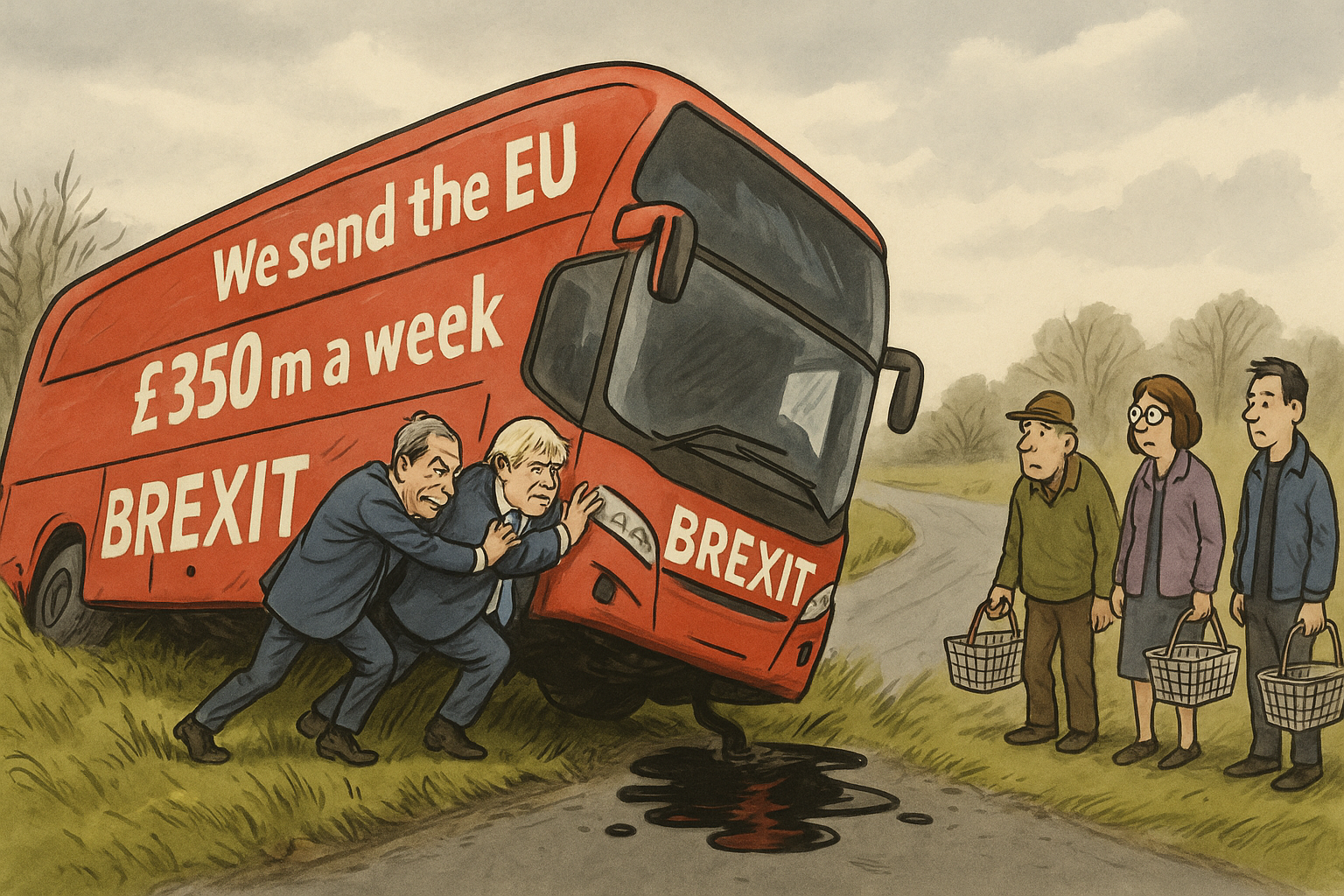Stay in the loop!
Summary
This article uncovers the harsh reality behind Big Tech’s artificial intelligence frenzy: the hype about AI “saving the world” is a convenient façade for what is fundamentally a power grab.
Silicon Valley titans – fromOpenAI and Microsoft to Google, Meta, and Amazon, are in an AI arms race, but it’s not to benefit humanity. It’s to consolidate their dominance, slash their labor costs, and harvest more data under the noble-sounding banner of technological progress. We detail how tech CEOs are using AI as an excuse to gut workforces and suppress wages, citing numerous examples of mass layoffs justified by “AI efficiency.”
We examine how a handful of companies are seizing disproportionate control over AI resources (massive computing power, talent, and data), creating barriers that lock out competitors and entrench their monopolies. The investigation also shows how AI is turbo-charging surveillance capitalism: tech firms are leveraging AI to collect and exploit personal data on an unprecedented scale, from monitoring user behaviour to automating ad targeting and even union-busting.
We call out the hypocrisy of Big Tech’s rhetoric, the same companies that claim AI will solve societal problems are aggressively lobbying to deregulate AI, grabbing government contracts for surveillance, and integrating AI into systems that amplify bias and corporate control. In blunt terms, this “AI gold rush” isn’t about a brighter future for consumers or workers; it’s about a power play by billion-dollar corporations.They seek to automate away jobs, centralise AI capabilities in their hands, and deepen their penetration into every aspect of our lives, all while marketing aIas some magical saviour.
This piece names the key players (like Sam Altman, MarkZuckerberg, Sundar Pichai, Satya Nadella), lays out the human toll (from displaced workers to privacy violations), and dismantles the myth that Silicon Valley’s AI obsession is altruistic. In truth, AI won’t save you – but it will make the richest tech giants even richer and more powerful, unless we wake up to the reality behind their promises.
Selling AI as Salvation
Walk into any tech conference and you’ll hear the same refrain: artificial intelligence will save the world. CEOs pitch AI as a cure for everything –disease, climate change, productivity. Google’s Sundar Pichai calls AI “more profound than fire or electricity.” OpenAI’s Sam Altman speaks of “benefiting all of humanity.” The subtext: trust us with AI, and miracles await.
But this narrative is a carefully crafted sales pitch. Big Tech’s AI race is not about humanity’s future, it’s about market capture, power, and profit.
Much of the “revolution” is hype. Many AI tools are incremental improvements packaged as breakthroughs. Auto-composed emails or slightly better voice assistants are useful, but hardly civilisation-changing. Yet the marketing positions AI as a messianic inevitability: embrace it or be left behind.
Why push this so hard? Because it justifies funnelling billions into AI under corporate control and wards off regulation. At Google’s 2024 I/O event, AI was mentioned in nearly every announcement, casting the firm as society’s benevolent innovator (privacyinternational.org). The reality is smaller. Flashy demos masking incremental upgrades, dressed as epochal change.
Executives are more candid with investors. On earnings calls, AI is framed not as humanitarian but as the next profit engine. NVIDIA’s trillion-dollar valuation rests on supplying chips for AI’s “gold rush.” Microsoft’s $4 trillion market cap spike came from tying OpenAI’s work into Azure (bloodinthemachine.com).
When Big Tech extols AI’s promise, notice how their solutions often require more of your data and deeper reliance on their platforms. AI assistants that handle your tasks also monitor everything you do. Privacy International warns these services open “a new wealth of data,” intensifying surveillance capitalism.
FreeAI tools are no gift – they’re trojan horses for ever-deeper monetisation of our personal lives. As soon as generative AI gained traction, Google and Meta raced to figure out how to insert ads into it (privacyinternational.org).

Mass Layoffs and “Efficiency”Excuses
The clearest sign AI isn’t about people is how it’s being used against workers.
Since2022, hundreds of thousands of tech workers have been laid off. CEOs frequently cite AI as the reason. Microsoft’s Satya Nadella justified cutting 10,000 jobs by pointing to automation. IBM paused hiring for nearly 8,000 roles, claimingAI would replace them. Google and Meta’s “Year of Efficiency” axed over 20,000 jobs each.
Rather than augment workers, AI is the excuse to slash them. Workday cut 1,700 jobs to“redirect investment toward AI” (rebootdemocracy.ai). Amazon, Intel, Meta – all followed suit.
Crucially, many cuts weren’t because AI had already automated roles. They were preemptive moves to appease Wall Street. Executives know saying “AI makes this role obsolete” sounds visionary. Saying “we’re sacrificing people for shareholder returns” doesn’t.
Investors cheer these decisions: tech stocks soared in 2023–24 partly because mass lay offs signaled “future-focused efficiency.” Analysts note companies aren’t waiting to see which jobs AI can truly do better – they’re cutting immediately to impress markets (rebootdemocracy.ai).
The toll is immense. Employees are discarded as expendable. Survivors are pushed to use AI to increase output, often doing the work of colleagues who were axed. In media, AI-written news has already produced embarrassing, error-ridden results, but publishers persist, hungry to cut headcount. Retailers use AI scheduling to squeeze workers; gig platforms fire drivers by algorithm.
Even governments are following. During Trump’s latest administration, the Musk-backed“Department of Government Efficiency” floated cutting federal staff by 30–50%using AI “analysis” (rebootdemocracy.ai).This wasn’t innovation, it was ideological downsizing dressed as futurism.
Instead of AI liberating workers, companies are liberating themselves from workers. Unless policies like retraining programs, shorter work weeks, or even a “robot tax” emerge, the trend points to fewer jobs, lower wages, and greater corporate control.
Monopolising AI andConsolidating Power
AI development requires immense resources, vast compute power, oceans of data, and elite talent. All are concentrated in Big Tech hands. Far from democratising technology, the AI boom entrenches monopolies.
Cloud dominance is key. Training a frontier model like GPT-4 requires tens of thousands of GPUs. Only Amazon, Microsoft, and Google own the global-scale data centres to support this. Startups must rent from them, funnelling revenue and dependency back to the giants (bloodinthemachine.com).
These firms act like venture capitalists, investing in startups and binding them to their clouds through credits and exclusive contracts. Microsoft and Google frequently invest in AI ventures, locking them into Azure or Google Cloud.Amazon does the same.
The cycle reinforces itself. Big Cloud dominance drives AI dominance, which strengthens cloud revenues. By 2025, Amazon, Microsoft, and Google controlled two-thirds of global cloud infrastructure. If AI is the future of computing, three companies essentially control computing’s future.
Data is another choke point. Facebook and Google have unparalleled behavioural datasets. Amazon holds purchase histories and Alexa recordings; Microsoft ownsOffice, LinkedIn, and GitHub data. Training and fine-tuning models generate yet more proprietary data, widening the moat.
Talent, too, is captured. Universities can’t match the $500k+ packages offered byDeepMind, Google Brain, or Meta AI. Even “independent” labs like OpenAI have pivoted into de-facto subsidiaries of Big Tech, OpenAI’s for-profit arm is effectively Microsoft’s extension via Azure.
When challengers arise, Big Tech neutralises them – through investment, acquisition, or leveraging scale. Google took stakes in Anthropic. Microsoft invested in AI chip challengers. Amazon tied itself to model providers. Any promising venture risks being bought, boxed in, or outcompeted.
The implications are stark. A few firms can now decide which languages AI serves, what ethical limits it observes, who gains access to advanced systems.Regulators are often co-opted: drafts of the EU AI Act were lobbied heavily by tech firms to weaken obligations, while US companies push for licensing regimes tailored to incumbents.
Researchers warn this creates instability and a bubble, much AI “growth” is just firms trading with each other, inflating valuations without sustainable innovation
(bloodinthemachine.com).Meanwhile, grassroots or non-profit AI projects lack the resources to compete.
Like past monopolies – IBM in mainframes, Microsoft in PCs – today’s giants are entrenching control over AI. Only this time, the scope is wider: AI is general purpose and can embed itself everywhere.
Surveillance Capitalism’s NewFuel
AI doesn’t dismantle surveillance capitalism, it accelerates it.
Most consumer AI tools are offered “free” or cheap. ChatGPT has a free tier. Google adds AI into Gmail and search. Meta pushes AI chatbots into Instagram. Monetisation will come the old way, through ads and data extraction (privacyinternational.org).
AI assistants can blur the line between advice and advertising. Microsoft’s BingAI has already produced answers laced with ads. An AI that chats with you can steer you toward products without you realising it’s marketing.
Training and deploying these systems requires oceans of data, much of it taken without consent. OpenAI scraped the internet to train GPT models, sparking lawsuits from artists and publishers. Even after launch, companies collect user prompts and interactions to refine future models unless you opt out (privacyinternational.org).
As AI integrates into health apps, cars, or workplaces, the scope of surveillance widens. Emotion recognition tools (notoriously inaccurate) are being developed to track workers or consumers via cameras. Voice and typing analysis can infer mood or medical conditions. All of it can be monetised.
Big Tech also sells AI surveillance to governments. Microsoft and Amazon have pitched facial recognition to police. Palantir brands itself an “AI company”while pushing predictive policing. Border agencies experiment with AI lie detectors. The same firms that caution against AI misuse, cash in on contracts for it.
Even in private workplaces, AI becomes the boss. Amazon drivers have been fired by algorithms. Retailers monitor staff tone of voice. Facebook allegedly used AI to predict which employees might leak information. Far from freeing humans, AI deepens control.
Environmental costs are ignored. Training GPT-4 consumed millions of litres of water in Microsoft data centres, straining local resources. Energy use is soaring as models scale. Companies still frame AI as “green innovation” even as its footprint expands.
AI also perpetuates bias. Hiring and lending systems trained on skewed data risk reproducing discrimination under a veneer of objectivity. Whistleblowers like Timnit Gebru, Google’s fired ethical AI lead, highlight these dangers, but are often silenced.
The truth is clear: AI is surveillance capitalism’s new engine. It extracts more data, more finely, while embedding itself into every aspect of life. Without intervention, it won’t liberate, it will monitor, manipulate, and monetise us further.
Conclusion: Power Over Progress
Big Tech’s AI gold rush is not a dawn of salvation – it’s a consolidation of power.
Executives wield AI as shield and sword, shielding themselves from regulation (“Don’t stifle innovation!”) and striking at workers and competitors.
The jobs lost, privacy invaded, competition stifled, these are not bugs, they’re features of the model. “Progress” is defined as whatever enriches the firms at the top. Philanthropic uses of AI exist, but they’re dwarfed by profit driven deployments.
If left unchecked, AI will magnify inequality. Wealthy schools will get AI tutors, poor ones will not. English will dominate AI tools while other languages lag. Public services will be cut in the name of “efficiency.”
The evidence is overwhelming: the same corporations promising to “benefit humanity”are using AI to deepen their monopolies, harvest more data, and discard workers. They release flawed AI to society as beta tests, apologising later if harms appear, because speed-to-market matters more than safety.
Real progress would mean AI’s productivity gains shared broadly, shorter work weeks, fair pay, public-interest tools. It would mean transparent development with community input. It would mean privacy laws enforced, and monopolies restrained.
As it stands, AI won’t save you. It will serve its corporate masters. Unless we demand accountability and reclaim its trajectory, the future will be coded not for humanity’s liberation, but for Big Tech’s domination.








-01.png)

